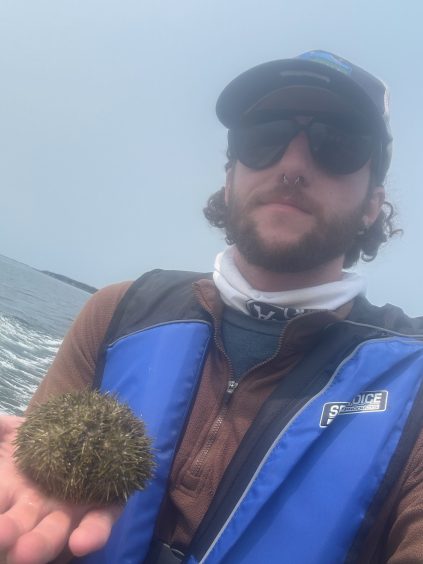Chandler Sendek
Contact Information
Email: chandler.sendek@maine.edu
Education
Ph.D Marine Biology, University of Maine, current
B.S. Environmental Science and Geology, Slippery Rock University, 2018
B.S. (Exchange) Environmental Science, University of Limerick, 2017
Biography
Chandler completed his undergraduate degree at Slippery Rock University of Pennsylvania in Environmental Science with a focus in Geology. During this time he worked on undergraduate research using meteorological data from the the Middle East, completed a field expedition to Nicaragua to study sustainable coffee farm practices, and was a member of the NSF Healthy Streams Healthy Coasts REU at the University of Louisiana at Lafayette where he studied the growth response of wetland grasses to flooding and soil composition. Following his Bachelors, he completed two AmeriCorps terms and worked a variety of seasonal jobs in the public and private sectors. He served as an environmental steward and paleontology intern at Makoshika State Park in Montana, worked as a kayak guide and volunteered at SR3 Sealife Response Rehabilitation and Response in the Salish Sea in Washington State, conducted terrestrial plant surveys for the Bureau of Land Management in the desert of Arizona and the sagebrush steppe in Wyoming, conducted aquatic invasive species surveys for Colorado Parks and Wildlife, conducted data analysis as a private contractor for the Central Alaska Network of the National Park Service, and worked as a wildlife technician at Mount Rainier National Park.
He is interested in how the ecology in rivers, estuaries, and nearshore systems change over time in the face of a changing climate and anthropogenic stressors. He is a trainee in the NSF 3-Dimensional Ecosystem Science National Research Traineeship (NRT) working in collaboration with the Maine Department of Marine Resources (MEDMR). He will be using long-term data sets, dive surveys, and field experiments to better understand how green sea urchin populations in the Gulf of Maine are changing overtime from climate change, harvest practices, and shifting trophic interaction.

